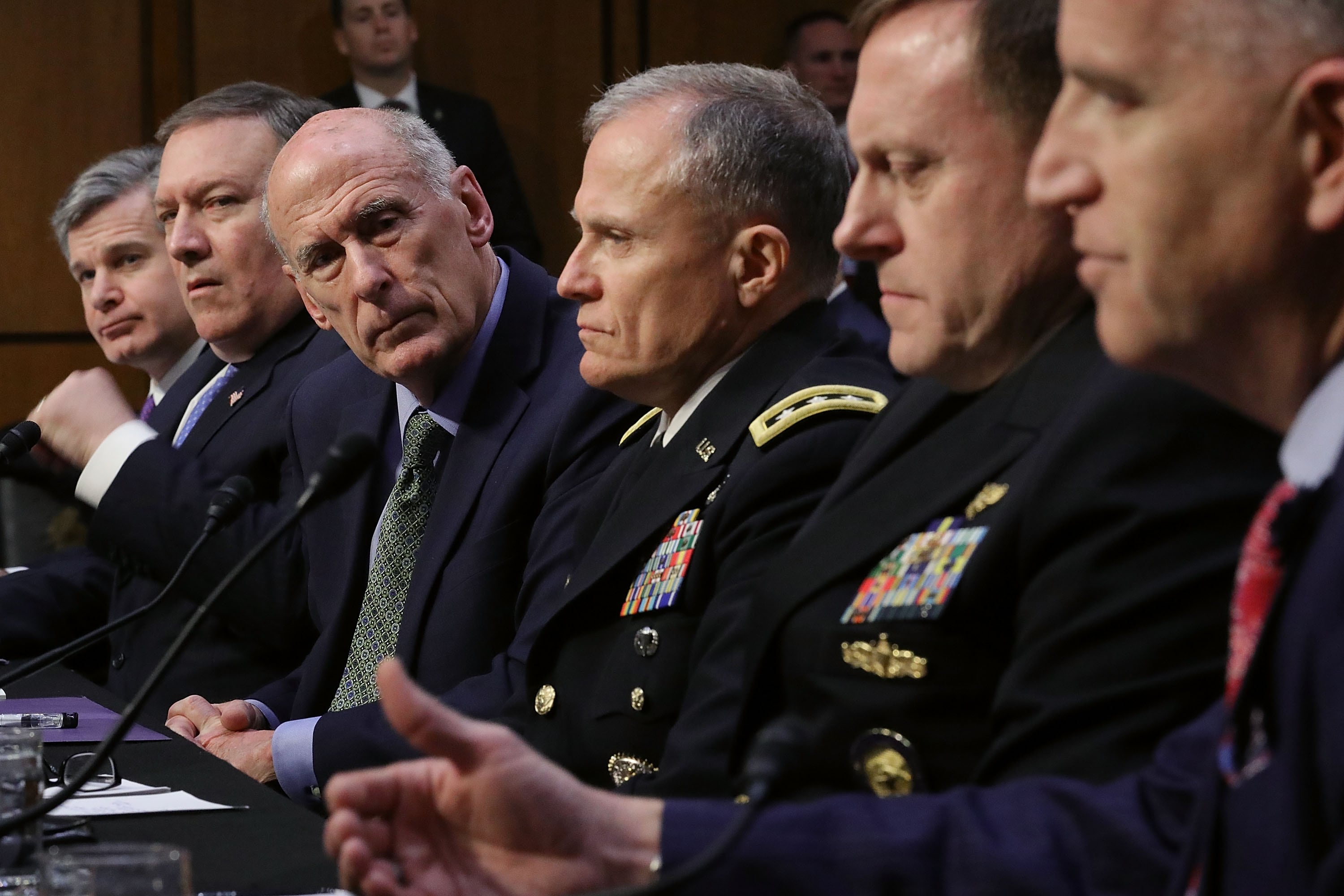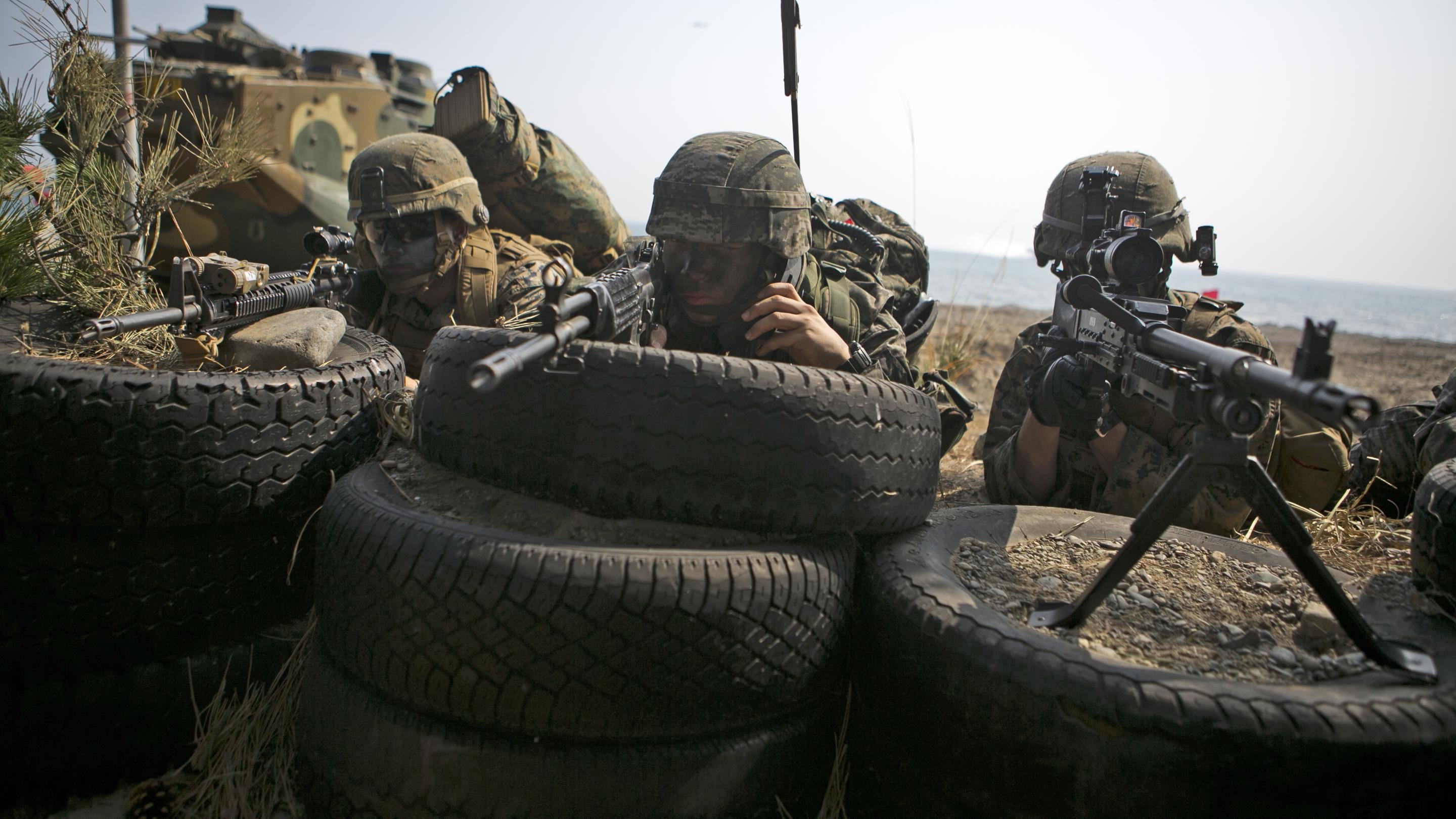WASHINGTON — National Intelligence Director Dan Coats said the U.S. is “under attack” in cyberspace and that Russia would likely step up its election meddling in 2018, spurring lawmakers to vent fears the U.S. is falling behind its adversaries.
Russia, China, Iran and North Korea pose the greatest threats to the United States during the next year, using cyber operations as a low-cost tool of statecraft, Coats warned the Senate Intelligence Committee on Tuesday. They will continue to use them, “unless they face clear repercussions.”
“Frankly, the United States is under attack,” he said, “under attack by entities that are using cyber to penetrate virtually every major action that takes place in the United States.”
Maine Independent Sen. Angus King, who has pressed two administrations to define a cyber strategy, fumed late in the hearing: “We have no doctrine of deterrence. How are we going to get them to stop doing this if all we do is patch our software and try to defend ourselves?”
Referencing the recent budget deal’s $1.4 trillion in defense spending, the intel panel’s Democrat, Sen. Mark Warner, lamented Russia’s election meddling cost “less than the cost of one new F-35 airplane.”
“We just made a massive additional investment in DoD, we’re roughly 10 [times] our spend versus our near-peer adversaries China and Russia,” Warner said. “We may be buying the best 20th century military money can buy, when we see our adversaries investing in [artificial intelligence], machine learning, quantum computing.”
Russia
Russia, among those who pose the greatest cyber threat to the United States, is likely to pursue even more aggressive cyberattacks against the U.S. and allies, the nation’s five other top intelligence officials affirmed.
“We expect Russia will conduct bolder and more disruptive cyber operations during the next year, most likely using new capabilities against Ukraine,” Coats said. “The Russian government is likely to build on the wide range of operations it is already conducting.”
Emboldened by Russia’s successful interference in the 2016 elections, President Vladimir Putin would target the 2018 midterm elections, intelligence leaders said. A response will take cooperation with state and local officials, and informing the American public.
“We’re not allow some Russian to tell us how to vote, how to run our country, I think there needs to be a national cry for that,” Coats said.
Though President Donald Trump has repeatedly wavered on Russia’s involvement, the intelligence leaders on Tuesday each affirmed a 2016 assessment of the entire intelligence community that Russia interfered in the election and has not relented in a strategy to undermine future elections.
China
Chinese investment in U.S. tech firms, threatening to erode America’s edge, is only one aspect of a whole-of-government effort by Beijing to expand its influence as a world power. China is also using “nontraditional collectors” of intelligence in academia, said FBI Director Chris Wray, adding: “They’re exploiting the very open research and development environment we hold dear.”
“I’m not sure in our 240-year history we have ever faced an adversary of this scale, scope and capacity,” Sen. Marco Rubio, R-Fla., told the panel. “It is my view that they are carrying out a very well-orchestrated, well-executed, very patient long-term strategy to replace the United States as the most powerful nation on Earth.”
Defense Secretary Jim Mattis, and key lawmakers, have asked the intelligence community for its “A-to-Z” analysis of China’s broad range of activity, according to Coats.

North Korea
In 2017 North Korean leader Kim Jong Un launched the country’s first intercontinental ballistic missile that the country said was capable of carrying a large nuclear warhead. While there has not been a launch to date in 2018, the U.S. intelligence committee warned more are coming.
“We expect to see North Korea press ahead with additional missile tests this year, and its foreign minister has threatened an atmospheric nuclear test over the Pacific,” Coats said.
U.S. goals to get the regime to abandon the nuclear program have not changed — and neither has Kim’s goal to fully realize a nuclear arsenal, Coats said. Nor should the U.S. be swayed by recent overtures by North Korea to South Korea during the Olympics, Coats said.
RELATED

”North Korea will be the most volatile and confrontational WMD threat in the coming year. In addition to its ballistic missile tests and growing number of nuclear warheads for these missiles, North Korea will continue its longstanding chemical and biological warfare programs, also.”
Iran
The 2016 implementation of the Joint Comprehensive Plan of Action has extended the time it would take Iran to develop a nuclear weapon from several months to about a year, Coats said. But the country is instigating or supporting instability in many other ways, including through its ballistic missile program and by harassing U.S. or allied warships.
“Iran will remain the most prominent state sponsor of terrorism and an adversary in the Middle East, especially in Iraq, Syria and Yemen,” Coats said. “Iran will seek to expand its regional influence and will exploit the fight against ISIS to solidify partnerships and translate battlefield gains into political security and economic agreements.”
Mattis has said that any additional pressure on Iran would be diplomatic, not military, even though “everywhere you find turmoil, you find Iran’s hand in it.”
RELATED

ISIS
While major U.S. and coalition military operations against the Islamic State in Syria and Iraq have subsided, “ISIS remains a threat and will likely focus on regrouping in Iraq and Syria, particularly in ungoverned portions of those countries,” Coats said.
Any remnants or reconstituting elements of the group are likely to focus on ”planning international attacks and encouraging members and sympathizers to attack their home countries,” Coats said.
Joe Gould was the senior Pentagon reporter for Defense News, covering the intersection of national security policy, politics and the defense industry. He had previously served as Congress reporter.
Tara Copp is a Pentagon correspondent for the Associated Press. She was previously Pentagon bureau chief for Sightline Media Group.





